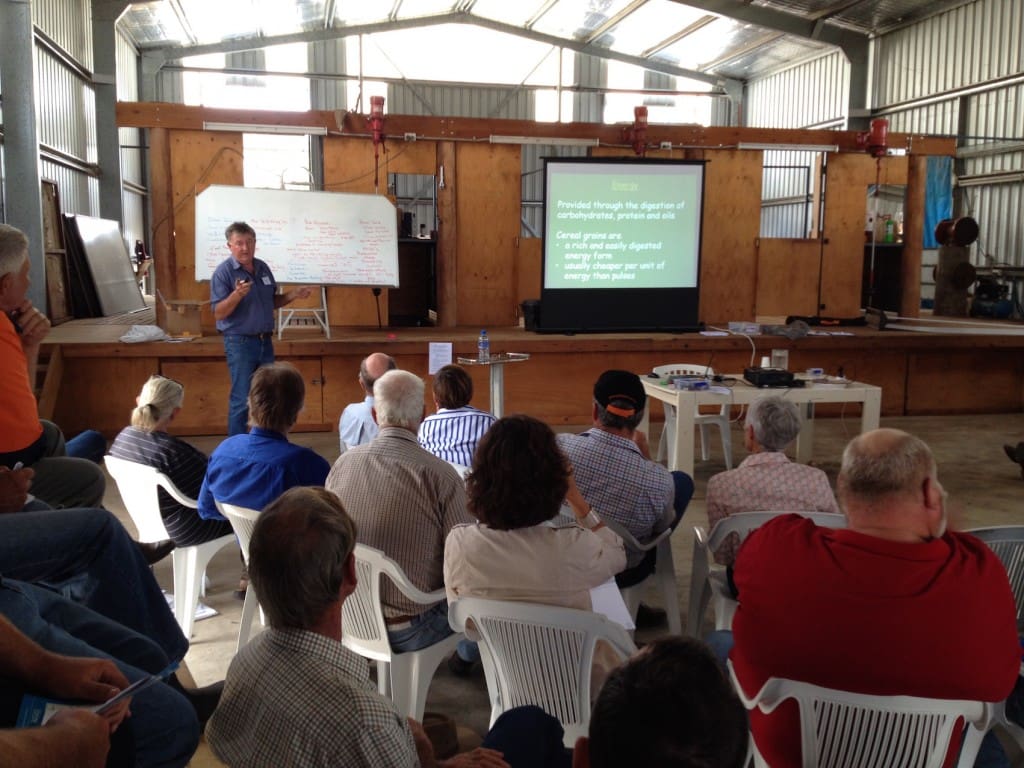
A SKILLS-BASED group of livestock producers, consultants and researchers from throughout Australia has been selected to help increase the rate of adoption of on-farm research and development outcomes.
The new Producer Adoption Reference Group has been established by Meat & Livestock Australia to provide strategic advice on the issues impacting the uptake of R&D adoption by beef and sheep meat producers. The group will be chaired by MLA general manager, producer consultation and adoption, Michael Crowley, and its recommendations will be delivered to the MLA board and red meat peak industry councils for consideration.
The group comprises:
- Tony Thompson – sheep meat producer, Bourke, New South Wales
- Penny Schulz – sheep and beef producer, and consultant, Sheep Producers Australia representative
- Basil Doonan – farm business consultant, Tasmania
- Professor Ruth Nettle – rural innovation researcher, University of Melbourne
- Andrew Gray – beef producer from Texas, Queensland
- Christine White – beef, lamb and wool producer from Coolah, New South Wales
- David Larkin – Hancock Agriculture, representing pastoral companies
- Elke Hocking – consultant, and beef and sheep producer, South Australia
- Cameron Nicholson – consultant and sheep and beef producer, Geelong, Victoria
- Liz Allen – beef producer, Cattle Council of Australia representative.
Key stakeholders, including representatives from the peak industry councils and other experts, will be invited to participate in supporting the reference group as required.
MLA program manager for adoption David Packer said a thorough selection process was undertaken following an open call for expressions of interest in late 2018.
“This new group will contribute to steering the direction of MLA’s Adoption Strategy to ensure MLA’s programs deliver outcomes that are relevant to and valued by producers,” Mr Packer said.
“Priorities for the group include providing strategic advice on methods to overcome the barriers to adoption, review of operational plans and project implementation, monitoring key performance indicators, and appraising industry stakeholders of the outcomes of adoption-related activities. It will also ensure that adoption-related communication is consistent, targeted and effective.
“Increasing on-farm productivity gains and profitability through the adoption of R&D, and new tools and technologies, is one of the six pillars of MLA’s Strategic Plan 2016-2020.
“Addressing the barriers to adoption of knowledge, practices and technologies on-farm will result in increased prosperity not only to producers, but throughout the entire red meat value chain.
“The group will focus on a range of key areas aimed at overcoming the barriers to commercial adoption of R&D. Its intention is to provide a forum for consultative discussion and consensus on the implementation and management of industry relevant programs and initiatives.
“This includes but is not limited to driving adoption of animal health and welfare, beef and sheep productivity, and feedbase R&D outcomes.”
The group will hold its first meeting during the first quarter of 2019.
Source: MLA

Producers will adopt research when they see positive results demonstrated to them, as in the paired paddock phosphate sites in Victoria. They are rightly very skeptical about other extension having being given incorrect feeding information for non merino ewes for the last ten years.
I agree with Grant to some extent. Eighty percent of production come from about 20pc of producers and if the majority of producers don’t have the good sense to seek out the best advice then let them be replaced by better producers. One of the most difficult thing for a producer these days would be to find valid information. The 4-5 years of replicated trial work necessary to validate research is not happening and producers are being subjected to all sorts of unproven ideas using Meat & Livestock Australia funding. The first task of the adoption committee should be to cease the funding of unproven ideas. Unfortunately, I do not see one individual with the 15-20 years of production research needed to make this assessment on the committee.
Why do organisations continue to invest in adoption?
The really good R&D outcomes don’t need adoption programs because they are adopted by producers who are always looking for an advantage.
We all use natural selection criteria for many traits in breeding sheep and cattle. Why not just allow natural selection of producers? Those who don’t adopt are replaced by those that do. Money invested in adoption can always be better invested in more R&D.